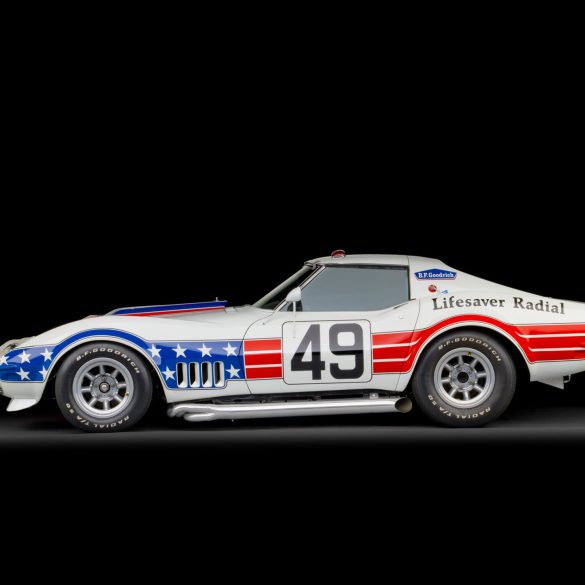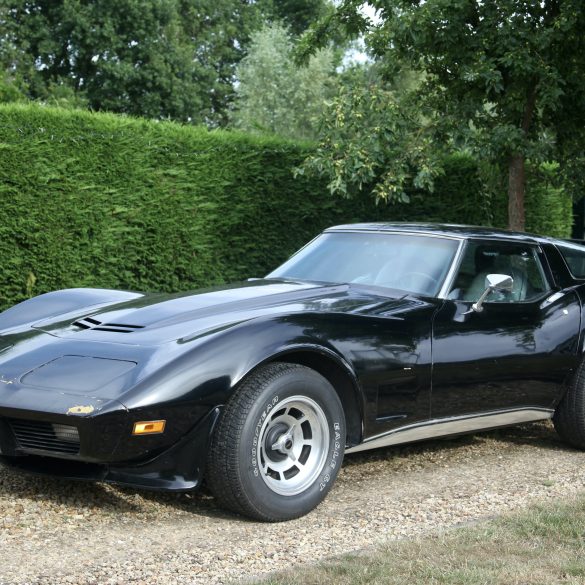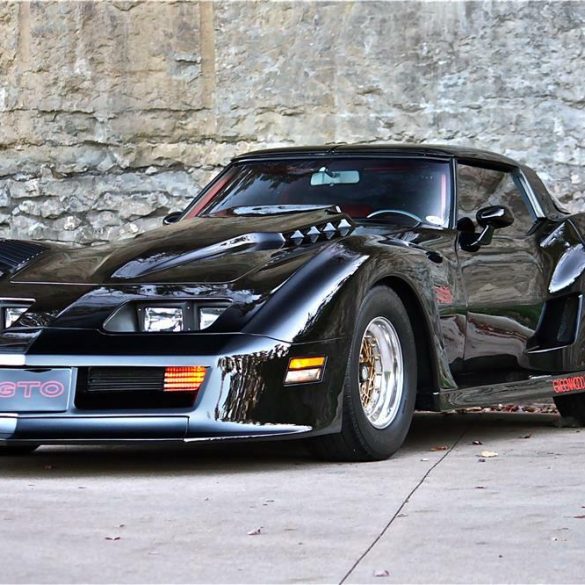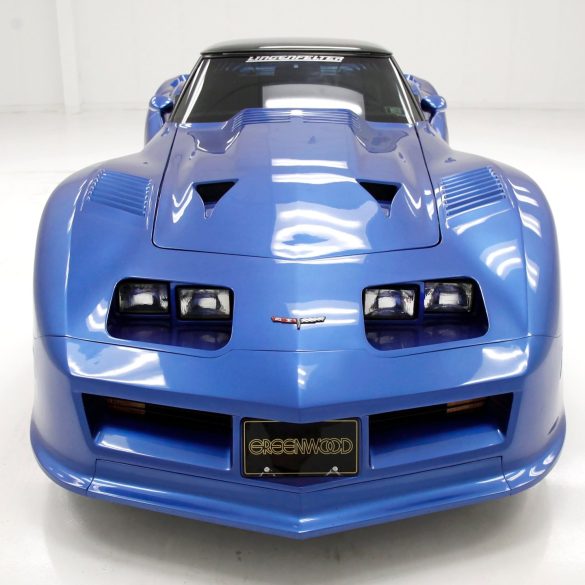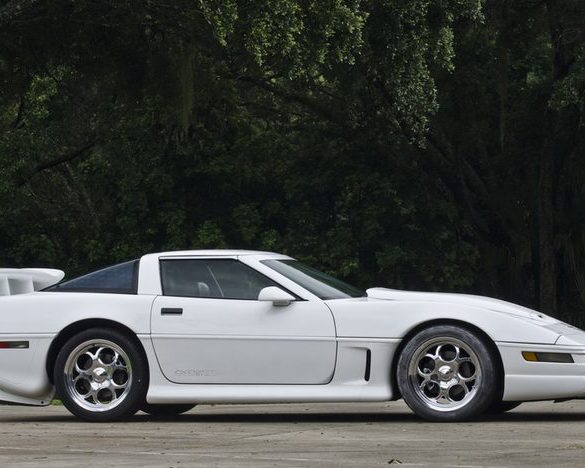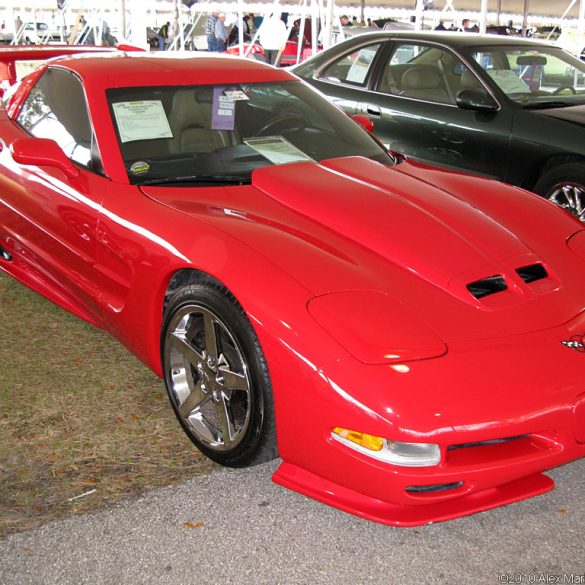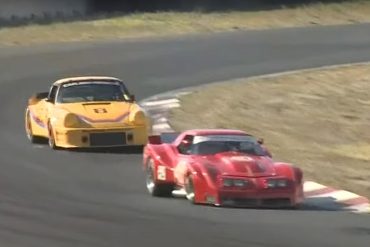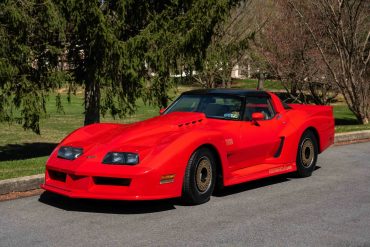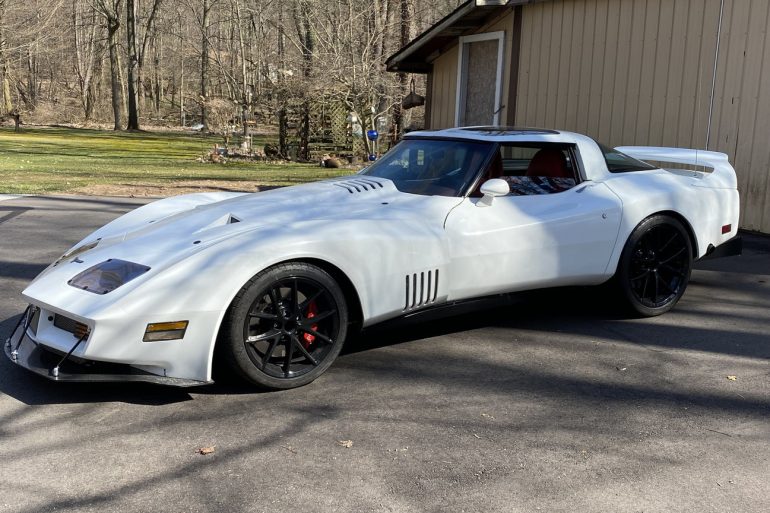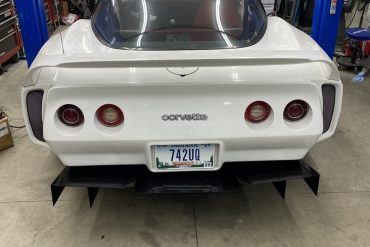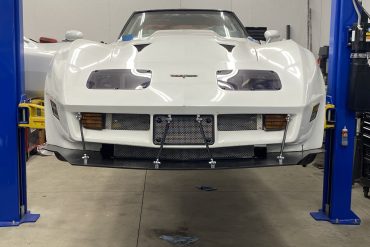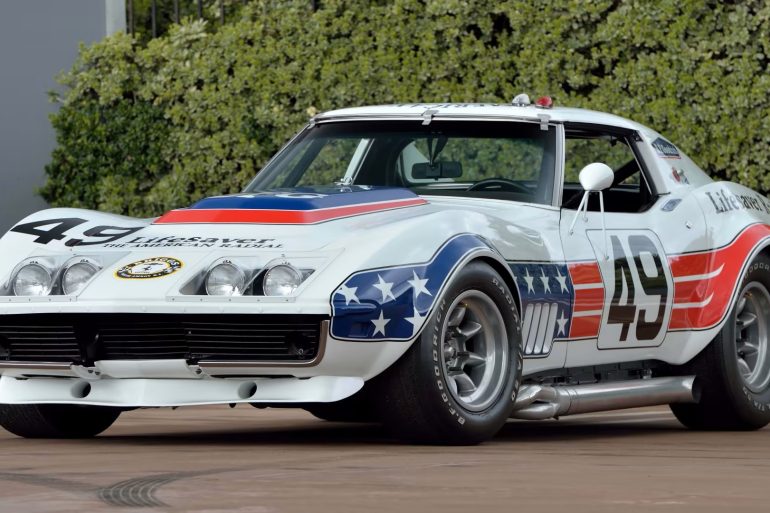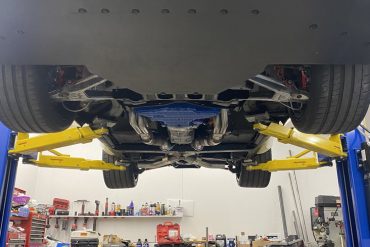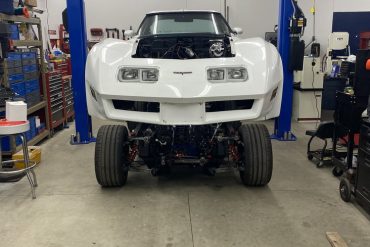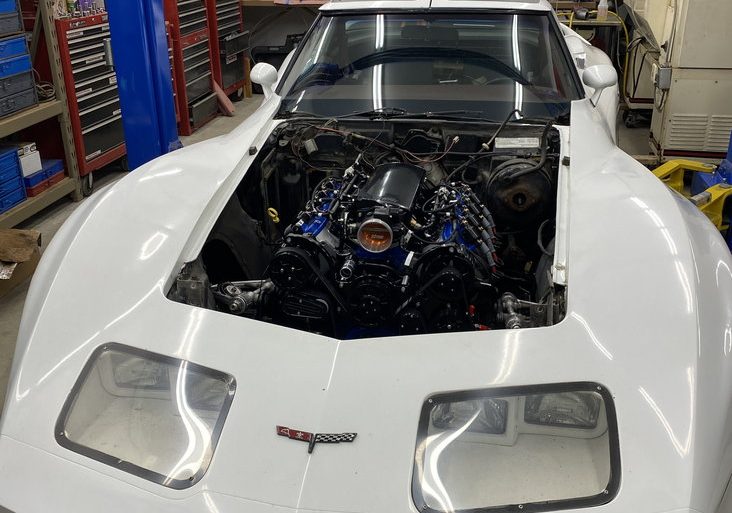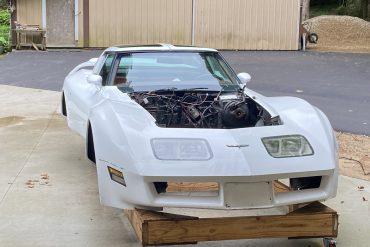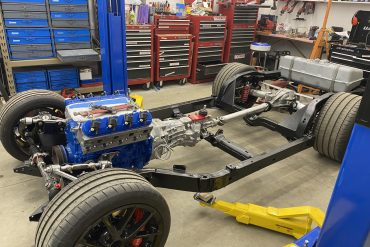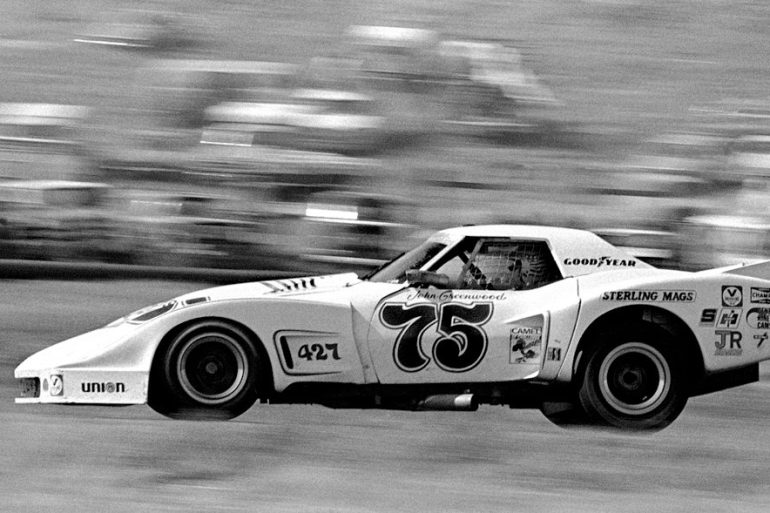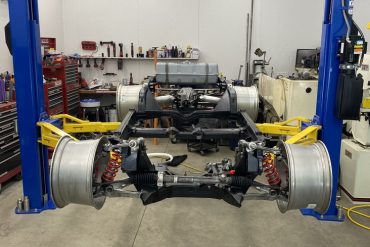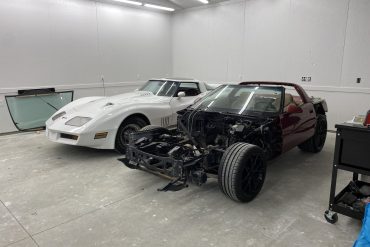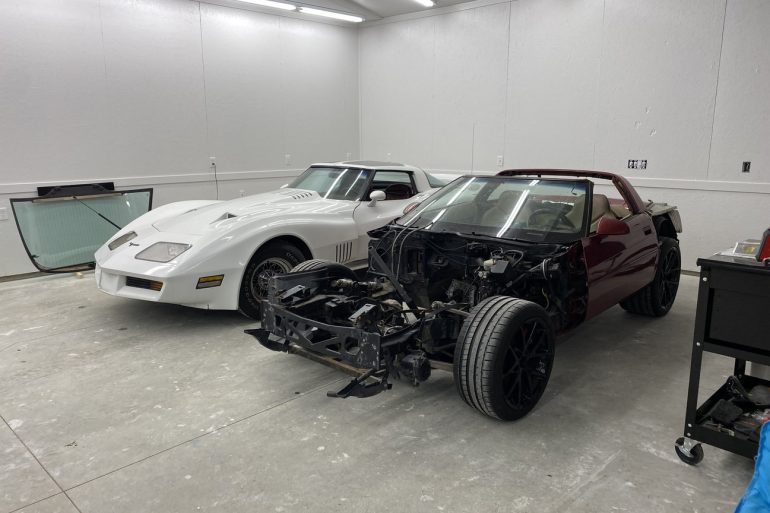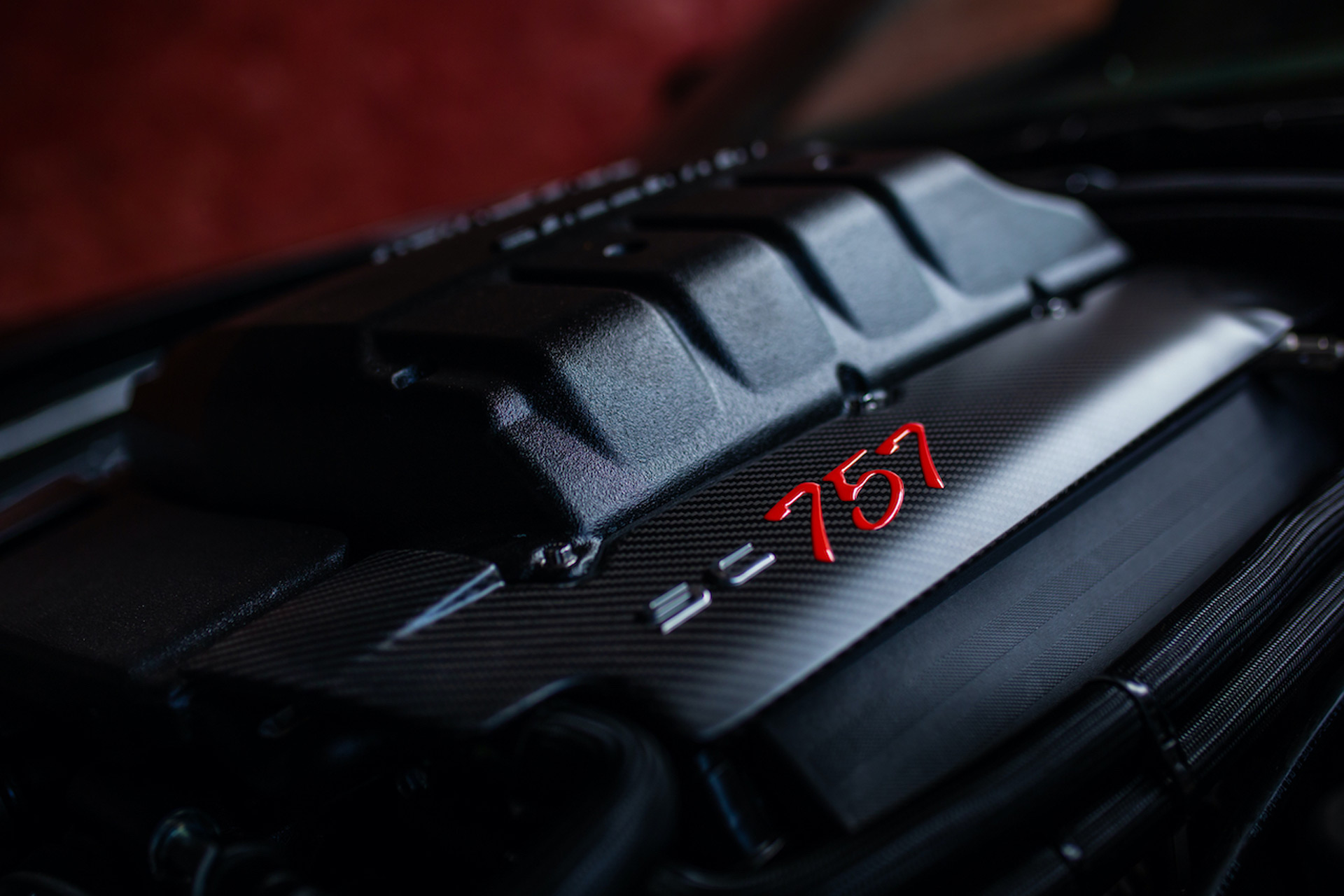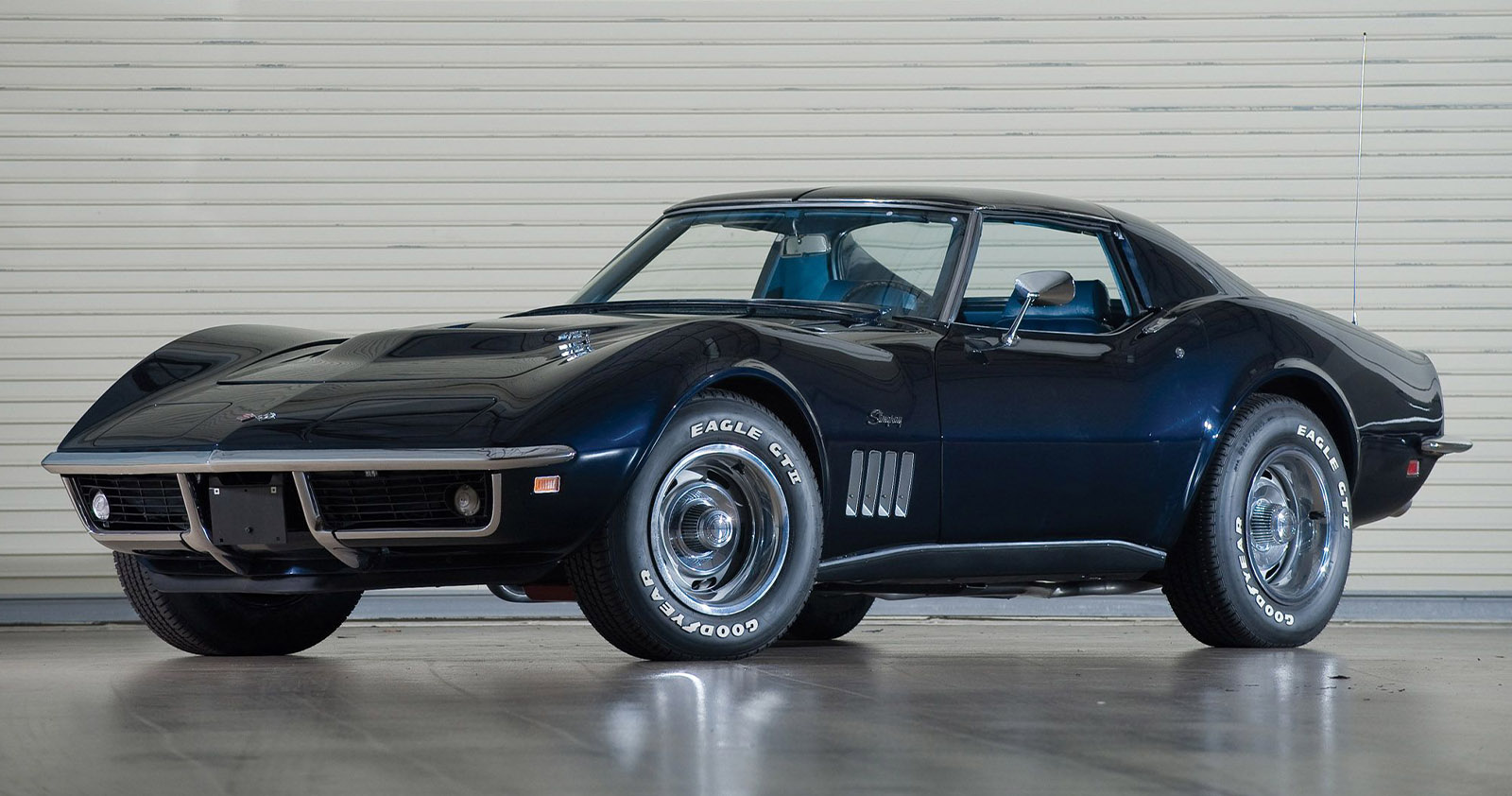When one of his cars was severely damaged in 1972, John Greenwood converted his 1969 L88 Convertible into a formidable race car. Included as the formidable ZL1 engine with 750 bhp on tap. Other modifications included a rear spoiler, quick replacement radiator and camber adjusters. At Le Mans, this car set the GT-class record for top speed down the Le Mans straight with 215 mph.
Greenwood Corvettes
Greenwood Corvettes is a automotive performance tuning and racing company specializing in Corvette sportscars and race cars founded by automotive enthusiasts and professional race car drivers, American brothers Burt and John Greenwood. Throughout his career as a professional race car driver and builder John Greenwood successfully piloted Chevrolet Corvettes in several significant races in the 1970s, including the 24 Hours of Le Mans (1972, 1973, 1976), the 24 Hours of Daytona (1971), and the 12 Hours of Sebring (1971).
In an effort to offset some production costs of specially tooled items and help finance their racing endeavors, the Greenwoods decided to offer a series of custom built street cars. Initially they were built primarily based on aerodynamics and styling cues, but eventually became nothing short of high speed endurance racers for the street. Between 1975 and 1981, forty-three custom made street cars based on five distinct body styles were produced by Greenwood International. The last three series – the Turbo GT, Daytona and GTO – all used turbocharged small block engines. Just as the race cars were copied, so too, were some of the street styles.
Just as the third generation Corvette left room for improvement, so did the fourth, also known as the C4 Corvettes. Production years ran from 1984 until 1996 and a slew of Corvette tuners jumped on the aftermarket bandwagon. The Greenwoods were no different in that respect, but much different in many other ways. With years of racing experience in machines that would handle more than 700 horsepower and untold g-forces, Burt and John found that in order to make the perfect street car they had to basically start with a clean sheet of paper.
As their C3 street cars evolved from their race cars, which were initially based on production Corvettes, so too did the evolution of the C4 program. Not unlike their C3 products program, the Greenwoods offered to the public various body kits, suspensions mods, and aftermarket wheels and stereo systems. As their penchant for perfection consumed them, they found that ultimately the C4 Corvette would have to be stripped down to the bare chassis and be rebuilt from the ground up using heavier duty components for most of the suspension and braking systems. Many Corvette tuners of the time would offer a supercharger here and some shocks-and-swaybars there, but few had the experience, or patience, to offer a complete package that was in effect, a completely different car. Although the Greenwood series of C4 Corvettes - the G-350, G-383, and unrealized G-572 - had some visual semblance to the stock Corvette, that is where the comparison stopped. The C5 has been improved with a double wishbone rear suspension but a lot of the other problems remain.
Greenwood Corvette News & Updates
Not much going here, but every now and again we see some great news, updates and Greenwood Corvettes popping up for sale.


